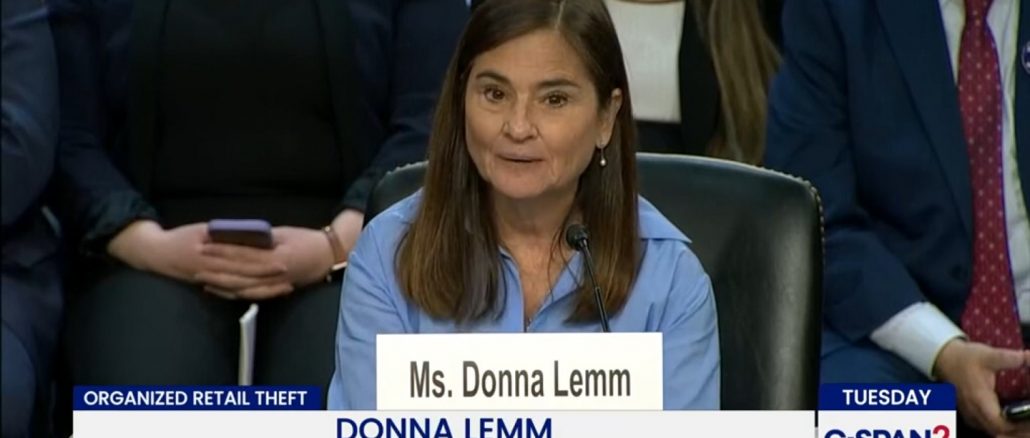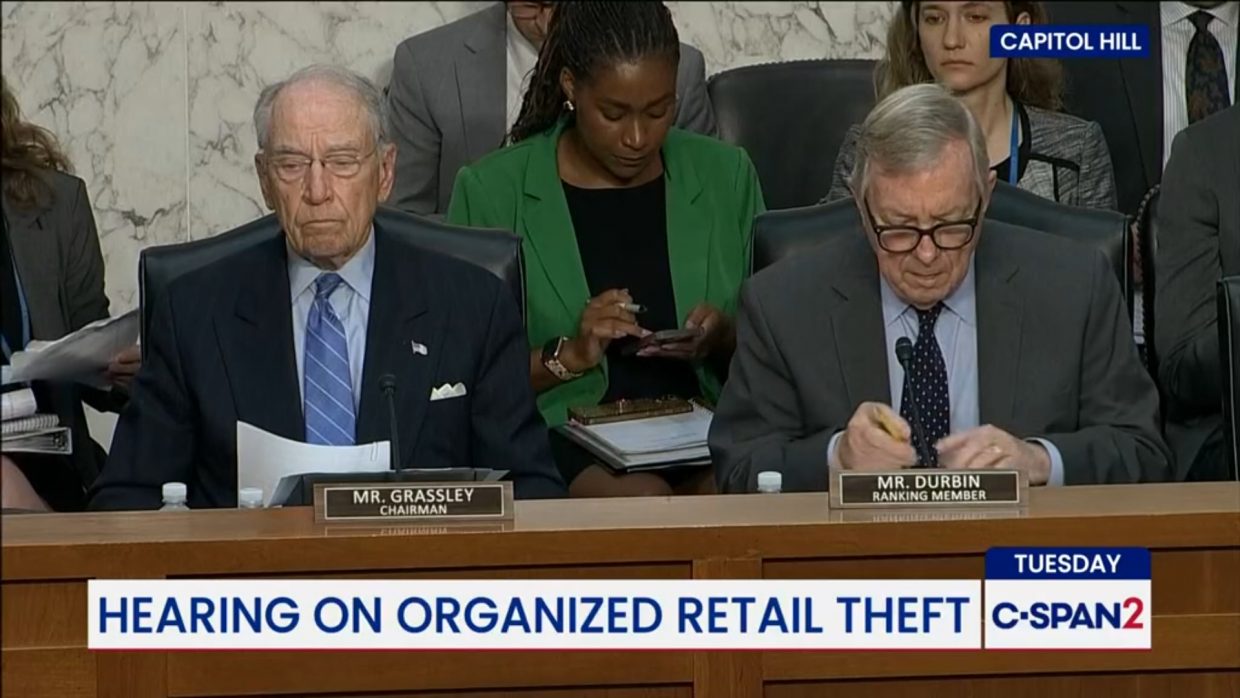
Washington, D.C. — July 18, 2025
Cargo theft is spiraling into a national crisis that threatens supply chains, inflates consumer costs, and endangers transportation workers, a logistics executive warned lawmakers during a Senate Judiciary Committee hearing this week.
Donna Lemm, Chief Strategy Officer at IMC Logistics, appeared on behalf of the American Trucking Associations (ATA) to urge swift congressional action. She voiced strong support for the Combating Organized Retail Crime Act, a bipartisan proposal that would empower law enforcement agencies with new tools to address increasingly complex cargo theft operations.
“Rising cargo theft is affecting the trucking industry across the United States. We cannot stay silent,” said Lemm. “Cargo theft will continue to metastasize unless Congress recognizes the severity of the problem, law enforcement devotes sufficient time and resources, and the federal government takes a leading role in coordinating enforcement efforts.”
The Senate subcommittee launched the hearing in response to a dramatic spike in organized thefts targeting freight. Cargo theft is estimated to cost the U.S. supply chain as much as $35 billion annually, with ripple effects felt by consumers in the form of higher prices and premiums. A particularly insidious form of “strategic theft”—which includes cyberfraud, identity spoofing, and insider schemes—has surged 1,500% since early 2021, with the average loss per incident exceeding $200,000, according to recent logistics security data.
Fragmented Response Leaves Criminal Networks Unchecked
Lemm shared examples of how a fragmented enforcement system often fails to connect the dots between isolated incidents and larger criminal conspiracies. She described an incident in which IMC Logistics lost two containers of refrigerators to cargo thieves. Local police, treating it as mere vandalism, filed a report but conducted no further investigation. Months later, federal agents raided a warehouse and discovered the stolen appliances—being repurposed to smuggle cash across the U.S.-Mexico border.
“This was not just theft—it was part of a transnational criminal operation,” Lemm told the committee. “Yet the local authorities had no means or mandate to connect the theft to broader criminal behavior.”
Without centralized oversight or coordinated enforcement, Lemm said trucking companies are left to fend for themselves. Many invest millions in layered security measures: guards, surveillance systems, GPS tracking, engine immobilizers, and emergency alert systems for drivers. But smaller carriers, lacking resources, are especially vulnerable to these sophisticated schemes.

Proposed Legislation Offers Coordinated Federal Strategy
The Combating Organized Retail Crime Act, introduced in April by Senators Chuck Grassley (R-Iowa) and Catherine Cortez Masto (D-Nev.), seeks to close these enforcement gaps. The bill would:
- Enhance interagency coordination
- Establish a centralized federal response led by the Department of Homeland Security
- Improve tracking and reporting mechanisms
- Strengthen legal frameworks to prosecute organized theft rings
“This legislation would finally give law enforcement the same level of coordination and sophistication that these criminal enterprises already possess,” Lemm said. “We’re grateful to Senators Grassley and Cortez Masto for recognizing the urgency of this threat and leading the charge.”
The American Trucking Associations and other industry groups have voiced strong support for the bill, viewing it as a necessary federal response to a problem that no single jurisdiction can tackle alone.
As theft tactics grow more advanced and costly, Lemm’s testimony underscored a key message to lawmakers: the trucking industry is on the frontlines—but it can’t fight this battle without federal backup.
For more information on the ATA’s efforts to combat cargo theft, visit trucking.org.